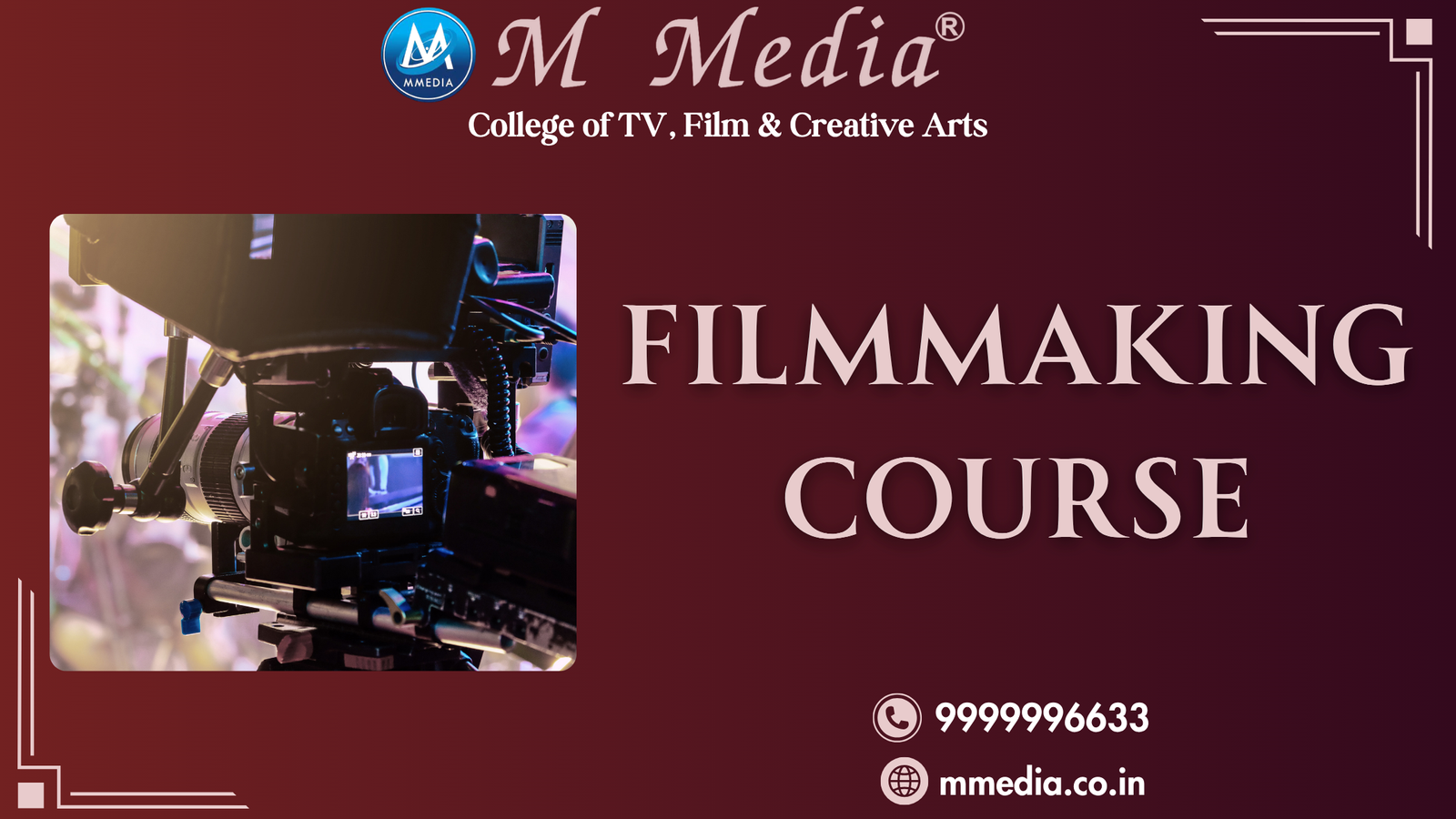
Filmmaking is more than just pressing “record.” It’s an intricate art form that blends storytelling, visual composition, sound design, acting, directing, editing, and production logistics into one powerful medium. A filmmaking course helps you navigate the entire journey — from concept to screen — by teaching you the skills, tools, and techniques professionals use to bring stories to life.
Whether you dream of directing Hollywood features, creating short films for festivals, or producing content for digital platforms like YouTube and Netflix, a filmmaking course acts as a foundation. It’s a guided, immersive experience where your creative ideas are nurtured and shaped into compelling, screen-ready work.
Filmmaking is also a powerful form of communication. With a smartphone in every pocket, more people than ever are documenting, entertaining, educating, and influencing. But storytelling without structure and vision often falls flat. That’s where structured film education fills the gap. For this course M Media, the College of TV, Film & Creative Arts is one of the best institute for filmmaking.
IMPORTANCE:
In today’s digital and content-driven world, knowing how to craft powerful visual stories is an essential skill — whether you’re working in cinema, advertising, digital media, or even education.
Here’s why a filmmaking course holds importance:
- Structured Learning: Self-learning is valuable, but film is complex. A course provides a systematic way to learn — step-by-step — from pre-production to final cut.
- Mastery of Tools: From DSLRs to mirrorless cameras, lighting kits to editing software like Adobe Premiere or DaVinci Resolve — a filmmaking course ensures you’re not just using tools, but mastering them.
- Collaborative Experience: Filmmaking is a team effort. Courses allow you to work with writers, editors, cinematographers, and actors — replicating real-world conditions.
- Understanding the Industry: Beyond creative aspects, courses introduce you to budgeting, pitching, copyright laws, and distribution — key for anyone planning a serious career.
- Creative Expression: Everyone has a story. Filmmaking teaches you how to tell yours in the most impactful way possible — blending visuals, sound, and emotion.
BENEFITS:
Choosing to enroll in a filmmaking course offers numerous unique advantages — both personal and professional:
1. Hands-on Experience
A good course emphasizes practical learning. You won’t just read about framing — you’ll shoot scenes. You won’t just study editing — you’ll cut your own projects. That real-world experience is invaluable.
2. Access to Equipment
Buying or renting quality gear is expensive. Film schools provide access to professional cameras, lighting, sound equipment, and post-production labs that beginners often can’t afford.
3. Mentorship from Industry Experts
You’ll learn from directors, editors, screenwriters, and cinematographers who’ve been there, done that. Their insights can shape your learning journey and even open future doors.
4. Portfolio Development
By the end of most courses, you’ll have a showreel or short film that demonstrates your skills — crucial for job applications, festivals, or freelance gigs.
5. Career Networking
Film schools often host guest lectures, alumni meetups, and industry panels. These events can connect you to producers, casting directors, and potential collaborators.
6. Diverse Skill Set
From storytelling and design to project management and communication — a filmmaking course strengthens a wide range of soft and hard skills that are transferable across industries.
7. Confidence Boost
Through repeated practice and feedback, you’ll develop creative confidence. Whether pitching a film or directing a crew, your skills will speak for themselves.
ADVANTAGES:
Beyond the immediate skills and credentials, a filmmaking course offers long-term benefits that impact both your personal growth and professional life:
1. Creative Thinking
Filmmaking enhances your ability to think outside the box. You’ll learn to visualize abstract ideas, solve problems on set, and explore multiple ways to tell the same story.
2. Communication Skills
Directing actors, collaborating with crew, and pitching scripts sharpens both verbal and non-verbal communication. You learn to guide, listen, and express with clarity.
3. Technical Proficiency
You’ll become proficient in digital filmmaking tools, software, and techniques — a valuable asset in many creative careers including marketing, social media, journalism, and advertising.
4. Career Opportunities
Graduates often pursue careers as:
- Film/TV Directors
- Editors
- Cinematographers
- Screenwriters
- Production Managers
- Visual Storytellers for YouTube, Netflix, OTT, and Advertising
Some even become independent creators, crowdfunding and releasing their own work.
5. Global Perspective
Cinema is a universal language. As you study films from around the world, you gain cultural awareness, empathy, and a broader understanding of human experience.
6. Monetization Potential
With platforms like YouTube, Patreon, and OTT streaming, filmmakers today can monetize their skills directly. A course equips you with the quality needed to stand out in these crowded spaces.
7. Emotional Intelligence
Telling stories requires empathy, sensitivity, and emotional intelligence. These traits, honed through filmmaking, enrich your interactions in both work and life.


